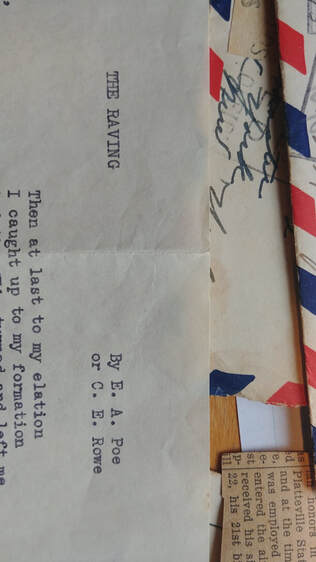 The Raving Poe Rowe
The Raving Poe Rowe 1
Usurpation Day was born 9 April 1792 in Philadelphia Pennsylvania.
Clifford “Tippy” E. Rowe was born 22 April 1923 in Shullsburg Wisconsin.
The Raving
By A. E. Poe or C. E. Rowe
Once upon a mission dreary,
When of combat I’ve grown weary,
I had flown a thousand hours
And was sure to fly some more.
When suddenly there came a knocking,
Sounded like some ack-ack popping –
Popping like the very devil
Just beneath my bomb-bay doors.
T’is some Jerry quickly tho’t I
Wishing to improve his score.
I will use evasive tactics
Even if he does get sore.
Turning then I saw before me
Blacker now than ere before
Ack ack bursting close and heavy
Guess I’d better turn some more.
Opening wide I swung the bomb-bay doors
And to my surprise and horror
Flashing fast and bright beneath me
Were some hundred guns or more.
And above the shrapnel shrieking
When they told us with much speech
That there were only three or four.
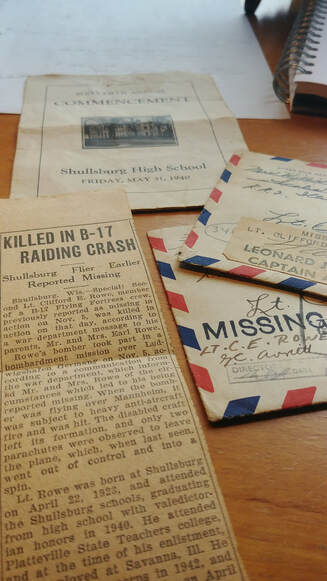 Shullsburg Missing Rowe
Shullsburg Missing Rowe 2
At the end of WWI, US President Woodrow Wilson presented defeated Germany with a constitution, one unlike ours; it did not represent people according to numbers, like George Washington and the founders intended: Wilson's plan was an epic failure and catalyst for Hitler and the Nazis.
Clifford Rowe graduates from Shullsburg High School in May 1940 with valedictorian honors, the same month Hitler invades Belgium, the Netherlands and France. Tippy joins the Army Air Corps in ‘42 and becomes a navigator for the B-17 bomber; he trains in Texas and leaves for Europe in June 1944.
Leveling then I made a bomb run
Which was not a very long one
For the Varsity was on duty
And I’d seen their work before.
Then an engine coughed and clattered
And the glass around me splattered
Then I knew they had my number
Just my number, nothing more.
Then at last the bombs were toggled
And alone away I hobbled
With some fifty-seven inches
And a feathered number four.
While outside like ducks migrating
Was a drove of ME’s waiting –
Waiting all with itching fingers
Just to finish up my score.
I had lost my upper turret
And now alone, defenseless, worried
I was the saddest creature
Mortal woman ever bore.
And now each bright and beaming traces
Coming nearer, ever nearer,
Made my spirit sink within me
Just my spirit, nothing more.
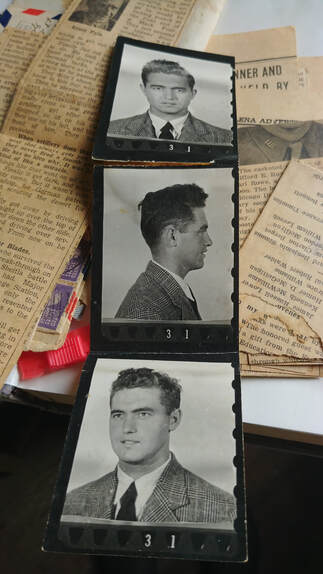 Clifford "Tippy" E. Rowe 1923-44
Clifford "Tippy" E. Rowe 1923-44 3
Usurpation Day is a day of remembrance for those who serve for the duration even when they are torn and tattered, nerves completely shattered.
Tippy Rowe didn’t want to be a bomber anymore and yet kept being a bomber. That’s a spirit of perseverance in the face of death: just my number, nothing more, just my spirit, nothing more.
Lt. Rowe was killed on 5 Nov 1944 while on a bombing raid over Mannheim Germany; the B-17 he was in was hit by anti-aircraft fire, went out of control, into a spin, and was nevermore.
Then at last to my elation
I caught up to my formation
And the ME’s turned and left me
By the tens and by the score.
But my wings were torn and tattered
And my nerves completely shattered
And as far as I’m concerned
The war is over, forevermore.
Now I’ve found the joy of living
And my secret I am giving
To the rest of those among you
Who might care to live some more.
For my sinus starts to seeping
Everytime they mention briefing
No more flying, no more combat
No more missions, Nevermore???????
Posted by Bryan W. Brickner
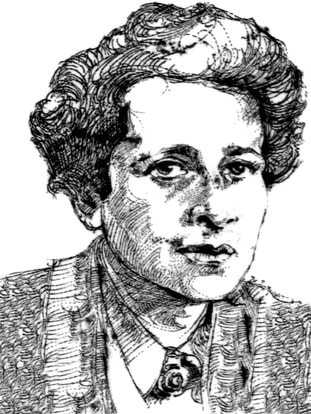
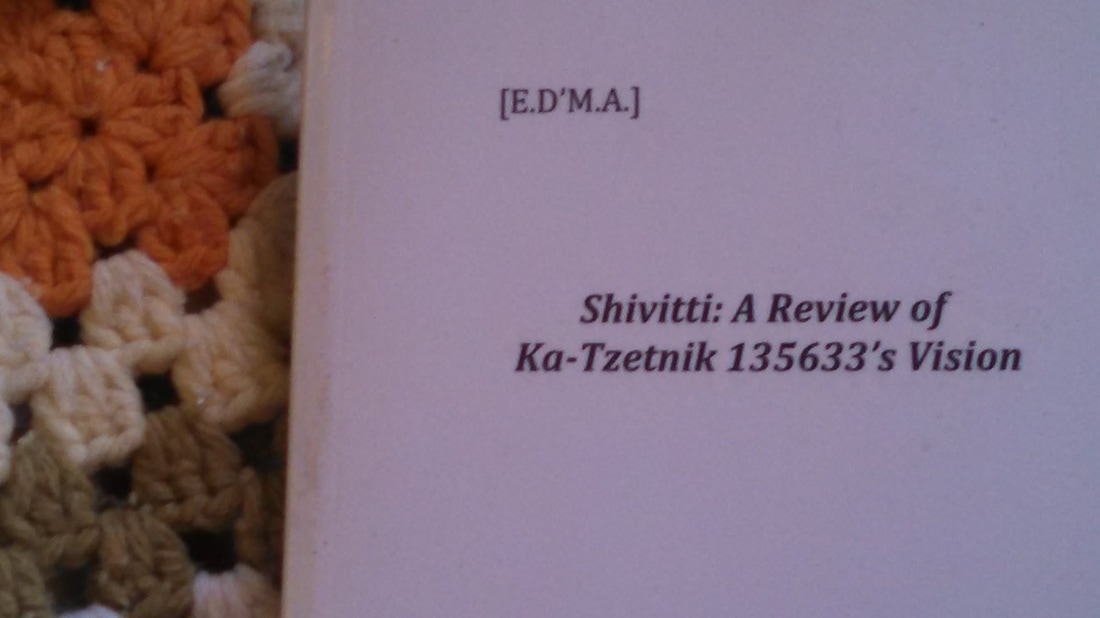
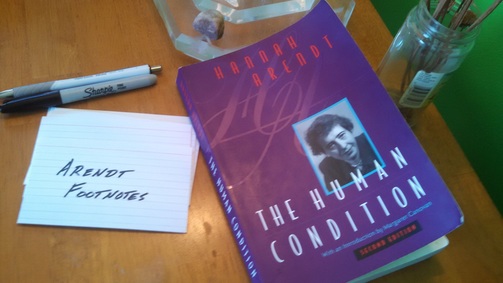


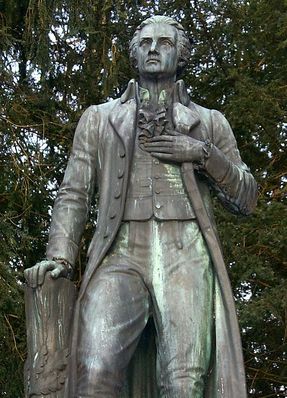
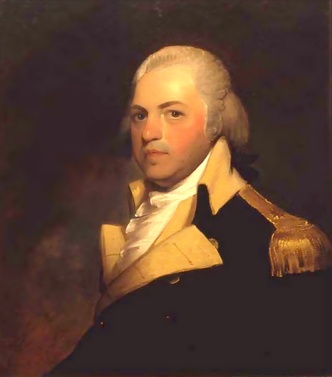
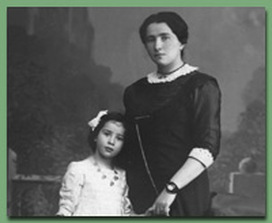
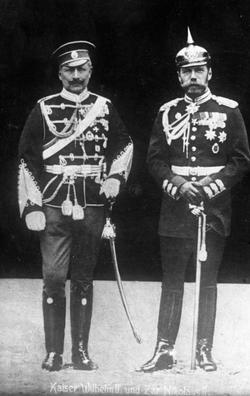
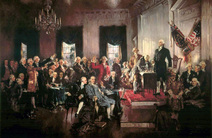
 RSS Feed
RSS Feed
